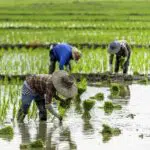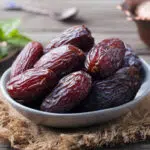Farmer’s Day is, basically, the farmer’s way of welcoming the new year in Taiwan (and China), and is celebrated every year between the Gregorian dates February 3 and February 5, with this year’s celebrations falling on February 4. The holiday, which is widely observed in Taiwan, is also known as ‘Lichun,’ marking the beginning of spring. Farmer’s Day is an annual observance in many countries, to acknowledge the contributions of farmers and agriculture. Chinese New Year is also celebrated around this time, so it is perfect to celebrate the beginning of Lichun with special village events, offerings, ceremonies, and prayers to the gods for a joyous and prosperous new year.
History of Farmer's Day
Before the political divide between mainland China and Taiwan, there used to be a time when they were one country with the same traditions and customs. Despite their political differences, Taiwan and China have exhibited identical history, culture, and traditions. One of their traditions has been farming which, according to archaeologists, dates back to at least 20,000 years ago. The primary occupation of the people used to be farming. And a portion of whatever they produced was collected as taxes.
In the rich traditional history of China and Taiwan, the influences of various dynasties exist — their own gods and supreme ones were introduced. There is a widespread belief in the existence of superior powers incomprehensible to humans, powers that, in Chinese traditional polytheistic religion, are sacred. Hence the tradition of appeasing these gods, and asking them for favors in normal day-to-day endeavors.
With the Chinese having their own calendar, and a strong system of sticking to their traditions, the farmers developed a ritual of celebrating the arrival of their new year by offering their farm produce to their gods, who would in return bless them and their families with prosperity and health. And although today such practices have lost their spiritual touch, people in China and Taiwan (and to a lesser extent Korea) continue to uphold and observe these traditions.
Farmers have always celebrated these traditions as part of their culture, but the actual proclamation of this day as a day dedicated to celebrating farmers for their valuable contributions was done in 1941 in the Republic of China. Upon the arrival of every new year, farmers exhibit their produce to welcome the new year with an exciting spirit and with high hopes.
Farmer's Day timeline
This is a revolutionary period in which farming is revolutionized with the use of iron tools and animals for plowing.
The oxen-powered chain pump is invented by the Chinese to pump water from wells.
The Silk Route paves the way for incoming and outgoing farming techniques, which are used to improve farm yields and quality.
The Republic of China announces February 4 as Farmer’s Day to acknowledge farmers’ contributions.
Farmer's Day FAQs
What is the biggest holiday in Taiwan?
The Chinese New Year is the biggest holiday in Taiwan. And if it coincides with Farmer’s Day, it becomes a double celebration, making it more fun.
What crops are grown in Taiwan?
Sugar, pineapples, crude tea, and asparagus are the principal cash and export crops, but some small amounts of Taiwan’s famous ‘oolong tea’ are also produced.
How much of the total land is used for farming?
Around 23% of the total arable land is used for farming in Taiwan, which not only fulfills the local demand but is also exported to other countries.
Farmer's Day Activities
Harvest your produce
If you are a farmer, now would be a perfect time to harvest your produce and exhibit it on a stage. Or simply offer it to the gods in a traditional style.
Follow the tradition
Follow what always has been the tradition in your area. This day has less of a monetary value and more of a warm, traditional value. Stay as true to the tradition as possible and pray for a prosperous new year.
Visit villages where the tradition still endures
We advise that, in order to enjoy the day, you celebrate in a village where the tradition is still maintained. While you're there, treat yourself to an abundance of farm-fresh fruits and vegetables.
5 Interesting Facts About Farmer’s Day
The 80th anniversary in 2021
The day marked its 80th anniversary in 2021.
It’s also celebrated in Korea and Singapore
Turns out, Farmer’s Day is celebrated not only in Taiwan and China but also in parts of Korea and Singapore.
The god of farming
Shénnóng is the Chinese peasant god who taught them the art and science of farming and herbal medicine.
A global leader in vertical farming
Farming is one of the mainstays of the Taiwanese economy and 23% of its land is used for farming.
Chūnbǐng
It is a traditional Chinese pancake eaten especially on this day with fresh farm vegetables and meat.
Why We Love Farmer's Day
A day of farm freshness
It is a day to enjoy the richness of a farm-grown organic vegetable or fruit and stay away from the inorganic daily fruits and vegetables. It’s a great day to care for your digestive system.
A day to enjoy the tradition
This day may not be a formal holiday but because it's traditional, you are encouraged to participate in the celebration, for the sake of tradition. And this year's date coincides with the Chinese New Year and, therefore, is special.
A farmer’s day
Farmers are the driving force behind every flourishing economy. This day acknowledges the efforts and contributions of farmers. It demonstrates value for the traditions passed down through generations.
Farmer's Day dates
| Year | Date | Day |
|---|---|---|
| 2026 | February 4 | Wednesday |
| 2027 | February 4 | Thursday |
| 2028 | February 4 | Friday |
| 2029 | February 4 | Sunday |
| 2030 | February 4 | Monday |


























